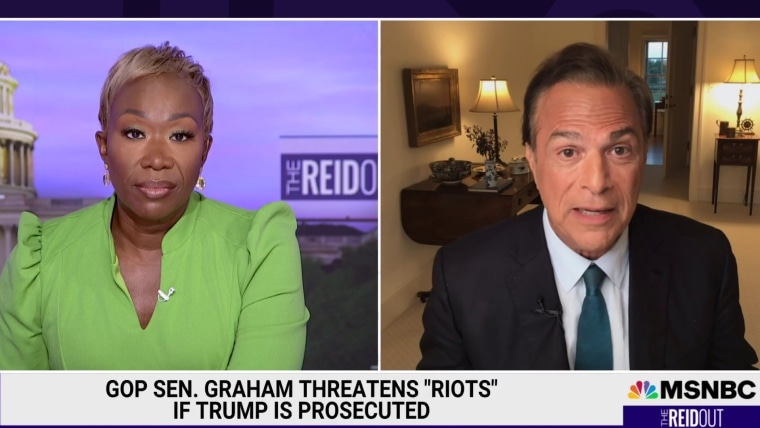A federal judge on Thursday struck down GOP Sen. Lindsey Graham’s attempt to completely avoid testifying in a criminal probe related to then-President Donald Trump's efforts to overturn the 2020 election results in Georgia.
But the judge — U.S. District Judge Leigh Martin May — left the South Carolina Republican room to potentially wiggle out of some questions that could shine light on the allegation he pressured the state’s top election official to throw out votes that heavily favored Joe Biden. (Graham has acknowledged calling the official after the election, but denies pressuring him to toss out votes.)
Still, the ruling fundamentally forces Graham to do something he’s pleaded with a judge to excuse him from: testifying before the grand jury convened by Fulton County District Attorney Fani Willis.
“After due consideration, the Court again declines to quash the subpoena in its entirety,” May wrote. “As to the issue of partial quashal, the Court quashes the subpoena only as to questions about Senator Graham’s investigatory fact-finding on the telephone calls to Georgia election officials, including how such information related to his decision to certify the results of the 2020 presidential election.”
Graham and his lawyers had argued that his post-election telephone calls to Georgia Secretary of State Brad Raffensperger, reportedly about striking so-called “fraudulent” (read: pro-Biden) votes from the official count, was part of his job as a senator. The calls came at a time when Raffensperger said he and his family were receiving death threats from Trump supporters angry at him for not falsely declaring Trump the winner.
However, Graham’s lawyers said he made the calls in an official capacity, which they said protected him from Willis' subpoena under the Constitution’s “speech and debate” clause. May’s ruling means Graham can’t spurn Willis’ subpoena outright. It still leaves room for him to argue — dubiously — that his call with Raffensperger was part of senatorial duties.
But Graham's lawyers will need to do that from a Fulton County courtroom, while their client provides testimony.

